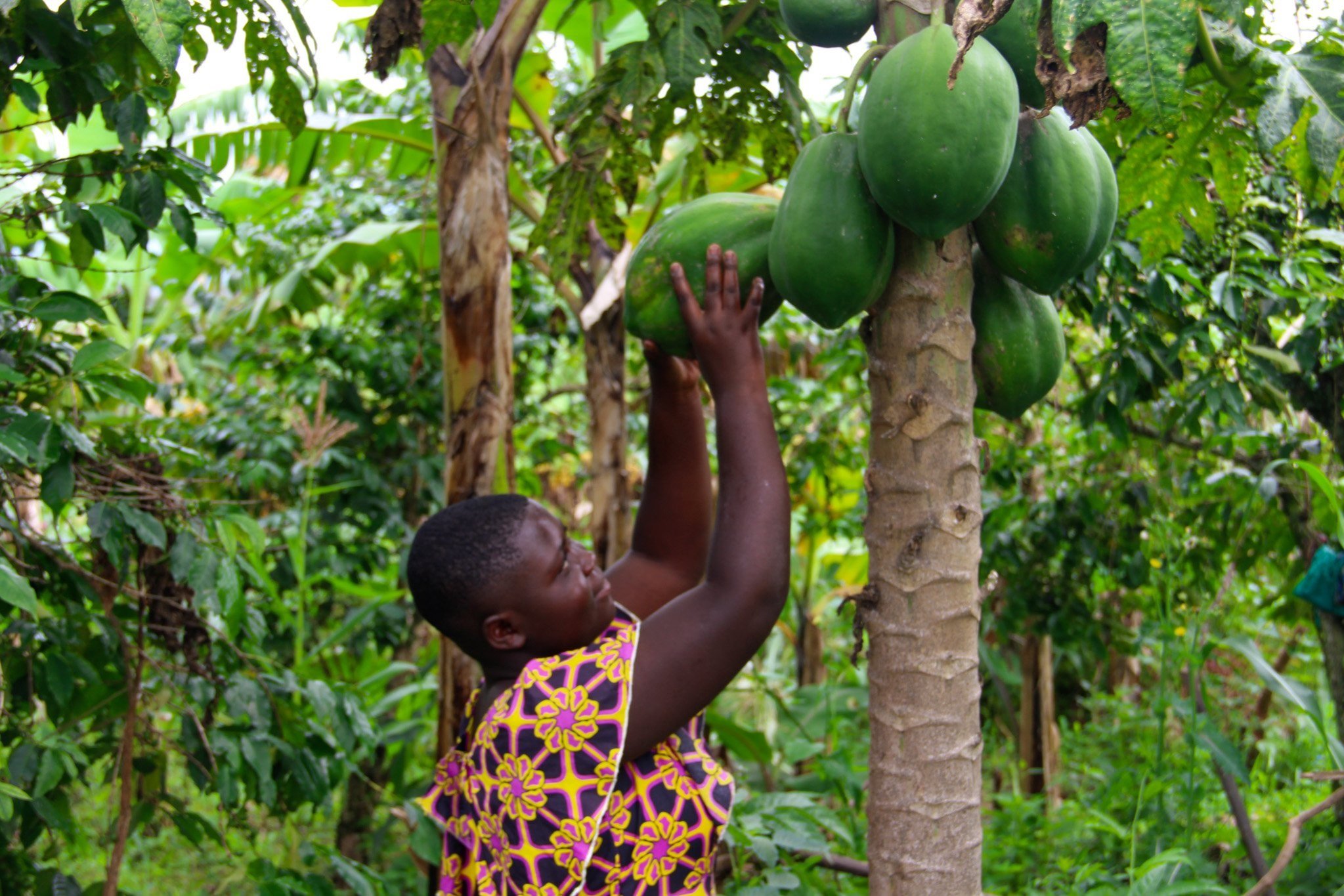How community forestry builds hope and resilience
Creating sustainable long lasting solutions that transform lives and landscapes through tree planting.
Community members collecting seedlings from community tree nursery managed by Landscape Conservation Mentors Organisation in Katavi, Tanzania
We urgently need to restore forests, regenerate degraded landscapes and plant more trees on farmlands for improved livelihoods. So over the last three years, we’ve been working with 17 incredible partners to plant trees that do just this.
This amazing programme of work, which spans across seven African countries, has been made possible thanks to the support of Prince of Wales’s Charitable Fund,
This initiative was called Sustainable Community Forestry Programme (SCF) because we work with community based organisations to create sustainable long lasting solutions that transform lives and landscapes through tree planting.
Restoring community and planetary wellbeing
A key area of SCF is to uplift those whose voices are not always heard.
And so we worked with community groups that had not previously received large external grants and sought to actively engage and support forest and landscape restoration initiatives led by or involving women, youth groups and schools.
These community-led forest and landscape restoration projects aim to restore community and planetary wellbeing.
From setting up community tree nurseries that produce healthy trees that can be planted in areas where they’ve been lost to promoting agroforestry (intercropping trees and produce on farms) to allow local farmers to build resilient and sustainable livelihoods.
Not only will these projects transform community livelihoods, they will also help restore local forest ecosystems and associated biodiversity through training on and the planting of threatened and native tree species.
A story of hope and resilience
Just our partners were about to kick-off project activities, the Covid-19 pandemic happened. Putting many communities at risk and delaying important forest and landscape restoration work. Unreliable rainfall, prolonged drought and price fluctuations also presented challenges for our partners.
Workshop led by Kijabe Environment Volunteers Organisation (KENVO) at their tree nursery in Kereita Forest, Kenya.
But, despite these challenges, our community tree planting partners demonstrated resilience by coming up with innovative ways to get the trees planted.
Low-cost sustainable land restoration techniques like Farmer Managed Natural Regeneration, are a great way to address issues like soil fertility and low crop yields while improving food security and resilience to climate change.
“The training I received equipped me with skills that help me support conservation efforts from an informed perspective. I am now in a position to establish a tree nursery and be able to extend this knowledge to others, this makes conservation efforts easy for all.” - Anne Githua, Kenya.
Anne Githua (pictured left) during fruit grafting training session with Kijabe Environment Volunteers Organisation (KENVO), Kenya.
Impact
Restoring ecosystems has a positive and direct impact on all our lives. From healthy and biodiverse landscapes to improved food and livelihood security.
Through SCF, we were able to plant and grow over half a million trees diverse trees, restoring over 500 hectares of degraded and damaged land!
Over 15,000 people got involved in the projects. And together with our amazing tree planting partners, we supported more than 1,000 smallholder farmers to adopt and practice sustainable land management techniques.
Bridget Biira, showing off pawpaw trees growing in her forest garden thanks to Karambi Group of People with Disabilities (KGPWD), Uganda.
Sustainability
We know that the impacts on biodiversity and ecosystem services take time - trees planted need to be nurtured and land management practices maintained for long-term success.
And the sustainability of these projects depends on increased community confidence and capacity.
“I have been able to increase the value of my land. People in my community are coming to learn from me and I enjoy sharing such knowledge with fellow farmers. I love seeing beehives, fruit trees and green gardens in the same place, this is the way to go toward achieving sustainability.” - Mzee Shija Sele, Western Tanzania.
Supporting young environmental stewards
Community-led restoration projects such as these are of vital importance in demonstrating that local communities can take effective action in the face of the climate and biodiversity crises and in empowering others to follow their lead.
School children from Ikuba Primary School, Tanzania planting trees in 2020
And by planting trees with school going children, these community led restoration projects are nurturing environmental guardians who are eager to protect and care fore their local landscape.
Trees planted by school children in Ikuba Primary School in 2020 that have since grown as shown here in 2022
Donate Today
Support communities on the front lines of the climate crisis to plant trees, restore ecosystems and improve their livelihoods.









